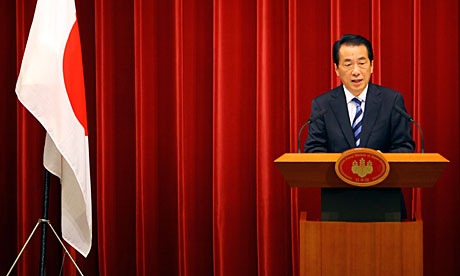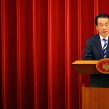
Russia Insults Japan Even As It Seeks Peace and Friendship
Publication: Eurasia Daily Monitor Volume: 7 Issue: 154
By:

As China becomes visibly more aggressive, tensions in Asia are visible, and Russian foreign policy changes to emphasize its economic relations with advanced countries who will sell it technology; it would make sense that Moscow and Tokyo should be drawing closer to each other. Yet, despite greater trade and signs of Japanese interest in investing in Russia, Moscow seems intent on continuing to inflict gratuitous insults upon the new government of Prime Minister, Naoto Kan. This is a strange way to win friends and influence people.
The previous Yukio Hatoyama government made clear its commitment to negotiate a peace treaty for World War II with Russia. Yet, even before Hatoyama resigned, progress was stalled because neither side would yield over the Kuril Islands, or what Japan calls the Northern Territories conquered by Soviet forces in 1945. Indeed, Moscow’s position has remained that the islands’ sovereignty is not a subject for discussion and that any attempt to discuss them immediately impedes progress on bilateral relations (ITAR-TASS, March 6, 2009). Japan refuses to accept this stance, and calls Russia’s presence there an illegal occupation (Russia Today, November 24, 2009; The Moscow Times, July 22, 2010). Even now, Tokyo urges Japanese firms to stop their employees from visiting the islands using Russian visas (Jiji Press, July 30).
Yet it is clear that both sides profess a desire to negotiate improved relations. It is rumored in Tokyo that Prime Minister Kan will appoint Hatoyama, who has a personal stake in improving ties with Russia, as the ambassador to Moscow (The Moscow Times, July 22). Foreign Minister, Katsuya Okada, announced that there would be three, rather than two, bilateral summits with Russia this year in order to make progress on outstanding issues (Kyodo News, March 8). Furthermore, there are abundant signs of heightened Japanese commercial interest in Russia. In 2009, Tokyo announced its desire to join infrastructure projects throughout Eurasia to help create a modern “silk road” from the Pacific to Europe (Interfax, July 2, 2009). In 2010, it reiterated its interest in large-scale infrastructure and energy projects in Siberia and the Russian Far East (ITAR-TASS, April 22; Yomiuri Shimbun, May 20). At the same time, it was revealed that despite the economic crisis in 2009, and the impasse over the Kuril Islands, Japanese investments in Russia doubled to $8.3 billion (ITAR-TASS, April 27). The same trend has continued in 2010, with bilateral trade increasing by 86 percent (ITAR-TASS, July 26). All these signs of growing economic ties would seem to be a natural fit for the overall new foreign policy and for President, Dmitry Medvedev’s, renewed emphasis on securing foreign investment for the Russian Far East as a precondition for its recovery (www.kremlin.ru, July 2, 2010).
Nevertheless, Moscow persists in insulting Japan. When it carried out its operational-strategic military exercises, Vostok 2010 (June 29 to July 8), its troops carried out operations on the Kuril Islands despite Japanese objections, again showing that it rejects Japan’s claims and doing so in a visibly high-handed manner (Novyy Region, July 5). Worse, the Duma has now passed a law signed by President Medvedev, sixty-five years after the end of World War II, making September 2 an annual holiday to celebrate the Soviet victory over Japan. Naturally, Japan informed the Russian government that such moves were not conducive to improving ties between the two states and urged Russia to handle the matter so that this does not become a further impediment to improving relations (Jiji Press, July 26). This law also ignores Russian public opinion which, according to polling data, wants good relations with Japan, perhaps unaware that the Kurils are an obstacle as 53 percent said that those islands should remain part of Russia. This represented an increase from 48 percent in similar polls conducted in 2004 (ITAR-TASS, July 29). Japanese public opinion, is equally adamant that the islands should be returned.
Despite the fact that economic logic and trends in their bilateral relationship favor improved political ties between Tokyo and Moscow, and certainly geostrategic developments in Northeast Asia would also seem to dictate that outcome, the political stalemate of the past will continue. While both sides have plenty to answer for in this impasse, it does seem odd that Moscow has gone out of its way to needlessly irritate Japan, just to score points domestically among nationalists. The continuation of such policies raises questions over the sincerity, honesty and effectiveness of Moscow’s calls for improved ties with advanced countries and its neighbors aimed at modernizing the Russian economy. Evidently, the old Soviet idea that you can only be friends with someone you can intimidate, still dominates elite thinking in Moscow.




